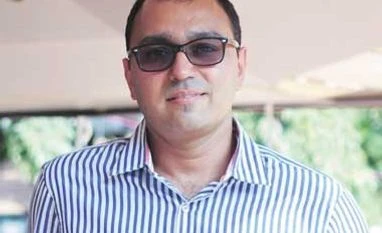When a farmer who had undergone laryngectomy (a surgical removal of the larynx or voice box) to fight throat cancer came to Rao, he told the oncologist that he couldn't afford the mechanical aid that would help him speak. "This prosthesis costs anything between Rs 20,000 and Rs 35,000. Where would he have got that much money from? And this has to be replaced every six months," says Rao. He managed to raise donations for the farmer, but what continued to weigh on him was the knowledge that his patients needed something that was sustainable and affordable.
Cancer is a common backer for laryngectomy. Over 200,000 head and neck cancers are reported in the country every year, according to the Indian Council of Medical Research (ICMR). Nearly three-fourths relate to cancer of the oral cavity, throat and voice box. And since voice-box removal is done only at a later stage, there isn't enough strength in numbers to incite pharmaceutical giants to look for affordable options, says Rao, delving into the economics of it all. Soon after, Rao dove headlong intothe matter with his industrialist friend Shashank Mahes.
Three months ago, in this same waiting room at HCG was a man from Kolkata who had boarded a train to Bengaluru on a general ticket - everything else would have heavily dented his pocket. He hadn't eaten properly for a month - after the laryngectomy, food would leak from his throat. Minutes in the OT and Rao had enabled the man with a spindle-like silicon prosthesis he had been working on ever since that farmer's visit. This cost the patient just Rs 50. "That's actually the cost-to-cost price," says Mangaluru-born Rao with an air of accomplishment. His prosthesis, called "Aum", is currently being used by three patients.
"If you send air into the food pipe through the lungs, it will vibrate, create noise, and that can be converted into speech by the brain, explains the doctor. As food or water should not fall into the lungs, this is a one-way valve device." When air passes through the voice box, it moves the two bands of tissues (vocal cords) in the voice box, hence creating vibrations in a process called phonation.
Up next, Rao will be closely monitoring a study involving 30 to 40 patients for six months. "In older scriptures, 'Om' was written as 'Aum.' 'A' stands for creation, 'u' for sustenance and 'm' for annihilation. These are the three basic principles of our universe. When a person speaks again after losing his voice box, for me it is like rebirth, like Aum being recreated because it is the origin of all sound," explains Rao.
When asked about the likely effect that "Aum" could have on the elaborate medical-pharmaceutical nexus in India, Rao doesn't appear ruffled. "I am least interested in giving competition to anyone. We have filed an open-source patent just so that if anyone can take this and make it better, they are free to do so," says the man whose idea of meditation is riding his silver Suzuki Intruder.
Delving on the need for "Aum", Rao stresses the pivotal role of speech and voice. A Mercedes or a BMW is a privilege, not a necessity, says the doctor. "But a cycle as a simple means of transport is a necessity," he says, reflecting on how the simplicity of the artificial voice box is also its star attraction. As Rao puts it, "The most beautiful things in life are simple, we just don't have the time to appreciate that."
You’ve reached your limit of {{free_limit}} free articles this month.
Subscribe now for unlimited access.
Already subscribed? Log in
Subscribe to read the full story →

Smart Quarterly
₹900
3 Months
₹300/Month
Smart Essential
₹2,700
1 Year
₹225/Month
Super Saver
₹3,900
2 Years
₹162/Month
Renews automatically, cancel anytime
Here’s what’s included in our digital subscription plans
Access to Exclusive Premium Stories
Over 30 subscriber-only stories daily, handpicked by our editors


Complimentary Access to The New York Times
News, Games, Cooking, Audio, Wirecutter & The Athletic
Business Standard Epaper
Digital replica of our daily newspaper — with options to read, save, and share


Curated Newsletters
Insights on markets, finance, politics, tech, and more delivered to your inbox
Market Analysis & Investment Insights
In-depth market analysis & insights with access to The Smart Investor


Archives
Repository of articles and publications dating back to 1997
Ad-free Reading
Uninterrupted reading experience with no advertisements


Seamless Access Across All Devices
Access Business Standard across devices — mobile, tablet, or PC, via web or app



)
